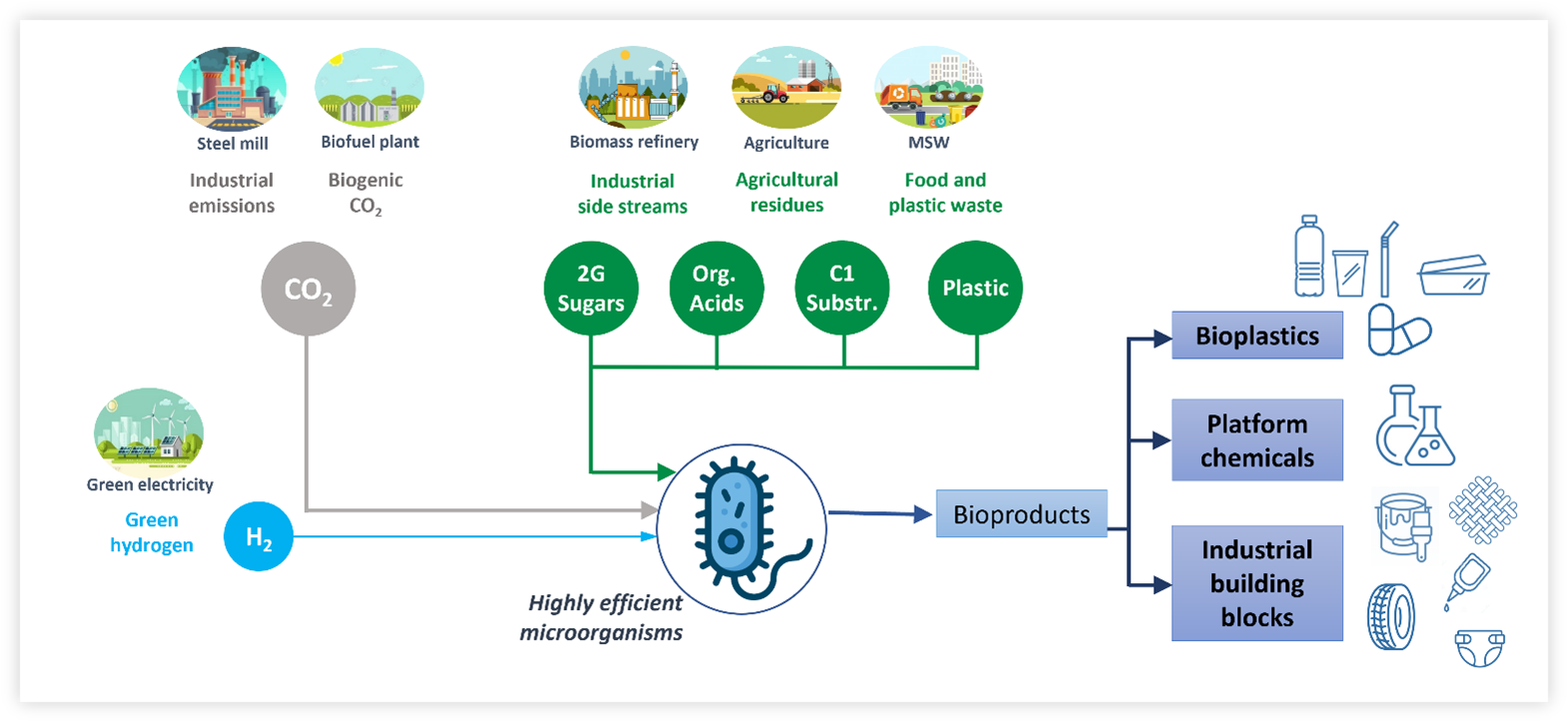Global warming represents one of the biggest challenges that has to be faced in the 21st century. It is generally accepted that maximum increase in temperature should be limited to 2 °C to preserve the planet. This means that a third of current oil reserves, half of gas reserves and over 80% of current coal reserves should remain unused from 2010 to 2050. By consequence, there is a dire need for new and sustainable production processes that do not contribute to an increase in temperature. The latter is clearly reflected in the European Green Deal but also in the Flemish Moonshot initiative. Industrial or white biotechnology will play an important role in this economic transition by making use of microorganisms and their enzymes for the production of a variety of products. However, as with all technologies, there are some drawbacks. Currently, the vast majority of industrially relevant production processes makes use of first-generation feedstocks, comprising food crops and products. Although high conversion efficiencies and productivities can be obtained, the utilisation of edible crops is costly and controversial in non-food applications. The use of non-food industrial side-streams such as 2nd generation (2G) biomass or direct gas fermentation using CO2 as a carbon source could offer an alternative. However, these streams are typically diverse and often contain inhibitory compounds.
In this context of clear needs for alternative, more sustainable materials and feeding solutions, InBio.be aims to play a pivotal role by developing microbial strains capable of using a wide variety of carbon sources and capable of producing a range of industrially relevant molecules. The latter ranges from drop-in commodity chemicals to specialty chemicals.

